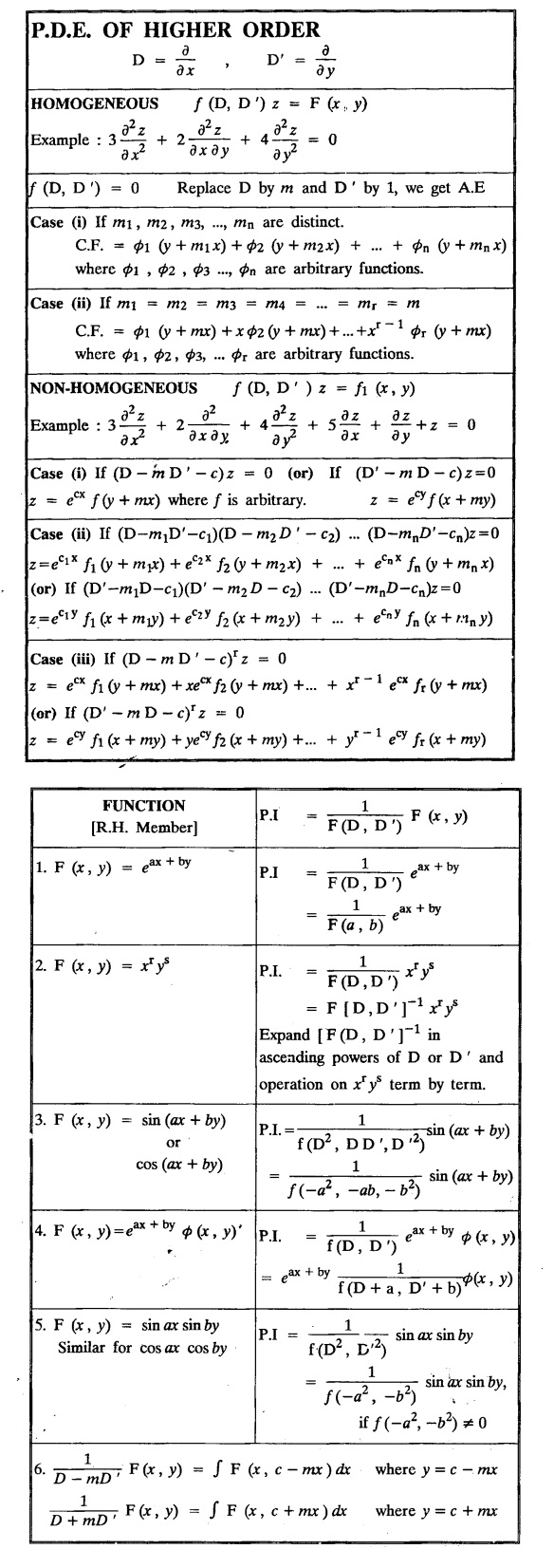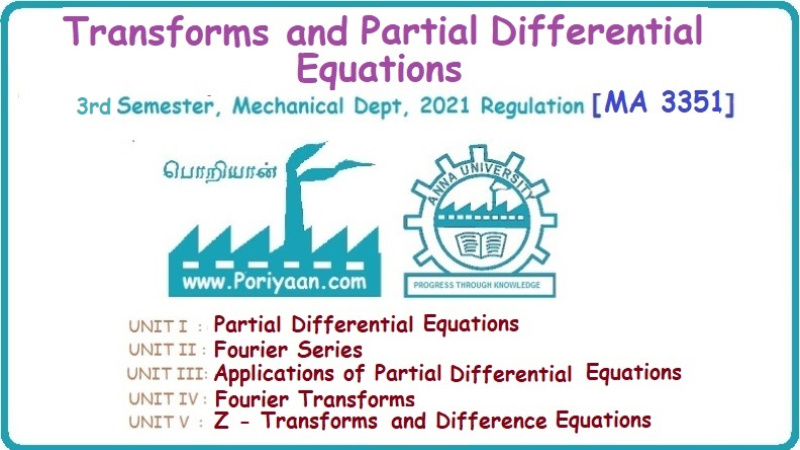Transforms and Partial Differential Equations: Formula
Some important hints, results & formulae
Transforms and Partial Differential Equations
some important hints, results & formulae : Z - Transforms and Difference Equations - Transforms and Partial Differential Equations
SOME IMPORTANT HINTS, RESULTS & FORMULAE UNIT-I The equation of the form Pp + Qq = R is known as Lagrange's equation where P, Q, R are functions of x, y and z. To solve this equation,; it is enough to solve the subsidiary equations Generally, the subsidiary equations can be solved in two ways. In the subsidiary equations Choose any three multipliers 1, m, n which may be constants or function of x, y, z we have If it is possible to choose 1, m, n such that IP + mQ + n R = 0, then l dx + m dy + n dz = 0 If l dx + m dy + n dz is an exact differential, then on integration we get a solution u = a • If the number of arbitrary constants is equal to the number of independent variables, we will get the p.d.e of order 1. • If the number of arbitrary constants is more than the number of independent variables, we will get the p.d.e of order two or more. The elimination of one arbitrary function will result in a p.d.e of the first order. • The elimination of two arbitrary functions will result in equations of second orders; three arbitrary functions will result in equation of third order and so on. A solution or integral of a p.d.e is a relation between the independent and the dependent variables which satisfies the given p.d.e. There are two distinct type of solution for p.d.e's 1. One type of solution containing arbitrary constants. 2. Other type of solution containing arbitrary functions. These two types of solutions may be given as solutions of the same p.d.e. A solution which contains as many arbitrary constants as there are independent variable is called a complete integral. A solution got by giving particular values to the arbitrary constants in a complete integral is called a particular integral. A solution of p.d.e. which contains the maximum possible number of arbitrary functions is called a general integral.1. Notations :

2. Lagrange's Linear equation


1. Method of Grouping
 if the variables can be separated in any pair of equations, then we get a solution of the form u (x, y) = a and v (x, y) b
if the variables can be separated in any pair of equations, then we get a solution of the form u (x, y) = a and v (x, y) b2. Method of Multipliers

3. Types of solutions of partial differential equations







Transforms and Partial Differential Equations: Formula : Tag: : Transforms and Partial Differential Equations - Some important hints, results & formulae
Related Topics
Related Subjects
Transforms and Partial Differential Equations
MA3351 3rd semester civil, Mechanical Dept | 2021 Regulation | 3rd Semester Mechanical Dept 2021 Regulation
